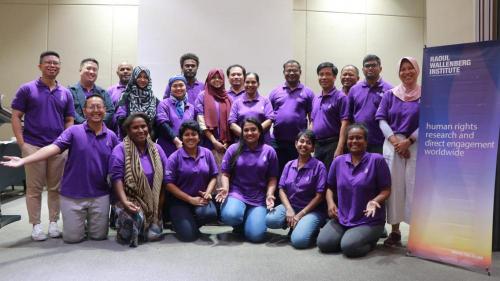
The event was attended by group of representatives from universities and research institutions from Bangladesh, Sri Lanka, Vietnam, and Solomon Islands. The group consists of senior and mid-level faculty members from non-law departments (i.e., sociology, geography, environmental management, engineering).
The workshop's objective is to integrate a Human Rights-based Approach (HRBA)into disciplines outside the field of law. This initiative aims to enhance the connections between climate change, human mobility, and human rights issues.
The workshop spanned three days, with each day dedicated to different aspects of human rights and climate change education. The first day featured sessions on theoretical concepts of human rights and climate change, led by speakers from the University of the Philippines and Parabukas.
The second day delved into the Human Rights-based Approach (HRBA) in classroom settings, delivered by Dr. Matthew Scott. During this day, participants explored the use of the Framework for Integrating Rights and Equality (FIRE) as a potential tool for integrating HRBA principles into course modules. Additionally, Dr. Teresa Cappiali facilitated discussions on transformative pedagogy and experiential learning, empowering participants to enhance their teaching methods.
Lastly, on the third day, participants focused on collaboratively creating modules that incorporated HRBA principles. Some groups selected to integrate HRBA into their existing modules, while others chose to develop entirely new courses, particularly those currently undergoing curriculum revisions.
Result: all groups have successfully finalized the draft modules and developed comprehensive action plans to facilitate the implementation of these modules within their respective institutions. The action plans encompass strategic measures that must be undertaken at the university management level to ensure effective module deployment.









